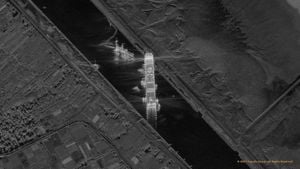Gasoline prices have surged dramatically across the Middle East, causing significant concern among consumers and governments alike. This rise, largely attributed to geopolitical tensions and OPEC's policies, has prompted discussions about its broader economic impacts on the region.
Experts indicate this price increase is primarily driven by the fluctuated global oil market, influenced by various dynamic factors such as political unrest and production cuts by the Organization of the Petroleum Exporting Countries (OPEC). According to analysts at the International Energy Agency (IEA), "The turbulence we see around the globe has resulted in unstable oil prices, directly impacting how much consumers pay at the pump." This instability is especially pronounced as the Middle East continues to navigate through complex political and economic landscapes.
The prices have reached unprecedented levels this quarter, with some countries observing increases upwards of 30% compared to last year. For example, data from the Ministry of Energy in Saudi Arabia reported average gasoline prices climbing to approximately 3.25 Saudi riyals per liter, marking one of the highest records since 2018. This substantial rise leaves not just consumers frustrated but also local businesses struggling to cope with fuel cost surges.
Transportation sectors across the region feel the heat, leading to inevitable price adjustments on goods and services. Dubai’s public transportation authorities expressed concerns as fares might have to rise. "We cannot ignore the rising operational costs," stated Ahmad Al-Mansoori, director of the Abu Dhabi Department of Transportation. Firms are already reporting decreased profit margins leading to layoffs and reduced service frequency as they adjust to new economic realities.
Consumer reactions are varied, with many expressing frustration and anxiety over the rising cost of living. Fuel prices tend to have a domino effect on other consumer goods, thereby heightening anxiety among the middle class about maintaining their quality of life. Local environmental activist Fatima Al-Ashqar (quoted by Al Jazeera) remarked, “The hike in fuel costs not only impacts our daily commute but also pushes up prices of food and essentials, which is unfair to the average citizen.” This sentiment resonates widely among families struggling to balance budgets amid mounting financial pressures.
The governments of the region appear to be stepping up to tackle these challenges. Some, like the United Arab Emirates, are considering subsidies or temporary relief measures to ease the burden on consumers. Economic analysts note, “If not addressed swiftly, these fuel price hikes could lead to widespread public discontent.” Awareness is growing as protests have already erupted intermittently across various cities, echoing public frustration over increased living costs.
Further complicate matters, the uncertain geopolitical climate, including tensions involving major oil-producing countries and fluctuated production outputs from OPEC countries, means there’s little clarity on how long this price surge might last. Industry experts are divided on their predictions—some believe these hikes are temporary, others warn of prolonged economic strain if tensions do not ease.
Nevertheless, consumers are beginning to shift their habits, with many exploring alternative transport options and carpooling to mitigate rising fuel costs. Users of rideshare and public transport exhibit increases as they look to save on gasoline expenses.
Businesses too are pivoting; logistics companies are increasingly adopting fuel-efficient technologies to cut costs. CEO of Transport Corp, Reza Hashimi, expressed, “Investing in hybrid vehicles is now not just environmentally friendly but also cost-effective—it's become imperative.” Such transitions could signal broader shifts within the region's business practices as they adjust to both economic pressures and environmental standards.
Looking forward, several regional leaders have begun advocating for strategies aimed at stabilizing fuel prices and promoting diversification away from oil dependency. “It's time we explored renewable sources,” says Khalid Bin Humaid, economic minister of Qatar.
At the same time, diplomatic initiatives aimed at resolving underlying geopolitical conflicts are also underway. There’s hope among regional analysts and policymakers alike; if tensions can diminish, stabilization might allow for oil prices to reflect less volatility.
While uncertainties remain about the future of gasoline prices, what is clear is the substantial ripple effect it has across the economies of the Middle East. Oil dependency is deeply embedded within these societies, and as fuel prices continue to rise, it forces consumers, businesses, and governments alike to rethink their strategies moving forward. This situation remains fluid, with potential for both short and long-term ramifications.
And as for the common consumer? They're left to ride out the storm, hoping for calmer seas as they fill up their tanks.



